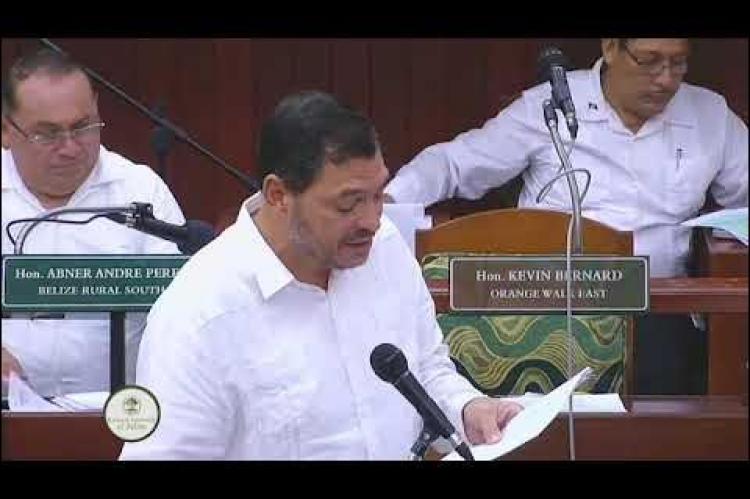Strengthening Political Accountability: Evaluating Belize's 11th Constitutional Amendment
By: Omar Silva, NP Staff Writer
Belize City: Sunday 13th August 2023
In a recent discourse surrounding Belize's 11th Amendment to the Constitution, Minister Julius Espat has elucidated the intentions behind this legislative action, refuting claims that it targets any specific individual. While the opposition has framed the motion as a direct assault on leadership, Espat, Chair of the Constitution and Foreign Affairs Committee, clarifies that the amendment is rooted in the imperative to adopt the United Nations Convention against Corruption (UNCAC). Moreover, he underscores that the objective to filter out individuals with criminal histories from parliamentary roles is an outcome of public feedback.
Espat's perspective is grounded in the analogy of seeking a police record when aspiring to become a police officer or seeking employment in significant positions. He equates this practice to the intent of the legislation, which addresses not just trivial infractions, but violent crimes and instances of corruption or abuse of public office. Espat emphasizes his willingness to expand the legislation's scope to encompass violent crimes, thereby focusing on more substantive transgressions.
The essence of Espat's message lies in dispelling the notion that the 11th Amendment is designed to target any specific political entity. Instead, it is a response to a nationwide outcry that has echoed throughout the country. This outcry resonates with concerns that the calibre of individuals entering the House of Representatives doesn't align with the standards that the institution, and by extension the people it represents, deserve.
He stresses the inherent contradiction in allowing a person convicted of a violent crime to assume a leadership role in the parliamentary system. Such a situation raises legitimate questions about their ability to uphold the very laws they are entrusted to enact and enforce. Similarly, when someone has been found guilty of corruption or misusing their public office, it creates doubts about their capacity to adhere to legal and ethical standards while managing the resources of the populace.
In light of these reflections, Espat's position resonates with a broader imperative – the need for politicians to undergo rigorous scrutiny before entering the realm of governance. This proposition aligns with the idea that those who shape the nation's policies and make decisions impacting its citizens should exemplify the highest ethical, moral, and legal standards. Ensuring that aspirants to political office are free from grave criminal records underscores a commitment to responsible leadership and governance that prioritizes the welfare of the people.
In conclusion, Minister Julius Espat's perspective on the 11th Amendment in Belize's Constitution is centred on bolstering the integrity of political representation. By explaining the rationale behind this amendment and clarifying its non-partisan nature, he emphasizes the public's interest in maintaining a high standard of ethics, legality, and accountability among political leaders. In an era where transparency and trust are vital components of effective governance, the call for rigorous evaluation of aspiring politicians is a testament to the commitment to the nation's well-being.
- Log in to post comments

